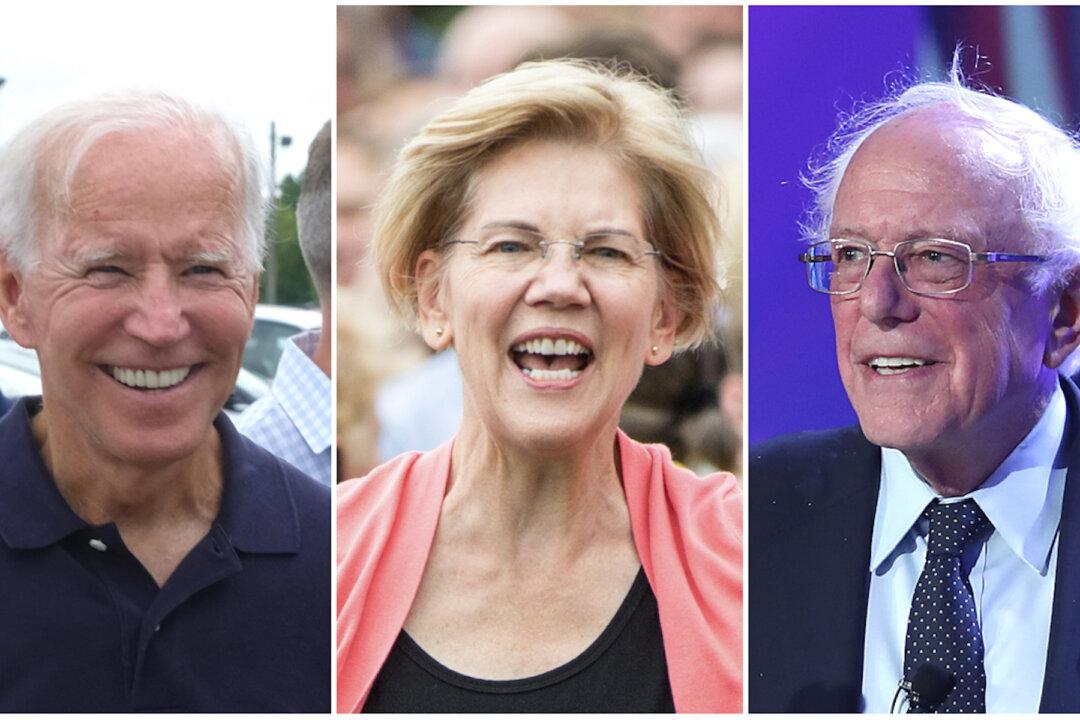The race for the 2020 Democratic presidential nomination is likely down to candidates former Vice President Joe Biden, Sen. Bernie Sanders (I-Vt.) and Sen. Elizabeth Warren (D-Mass.), according to former adviser to Hillary Clinton, Philippe Reines.
In an interview with Politico, Reines said that Sanders, Biden, and Warren are the only three candidates leading the polls above single digits in recent weeks.





